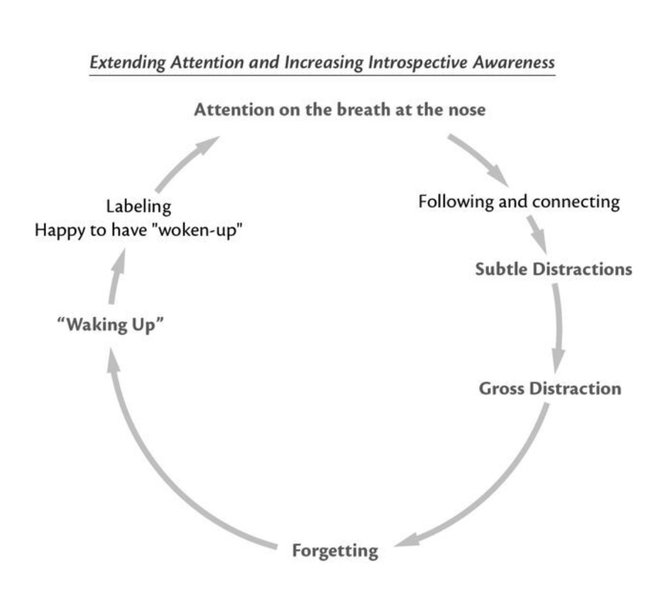Practical Meditation Advice
A helpful phrase to remember when dealing with distractions of any kind is, let it come, let it be, let it go. Don’t try to suppress it, just let it come into peripheral awareness. Don’t engage the distraction or focus attention on it, simply disregard it and let it be in the background. Then, let it go away by itself. This is a passive process.
... See moreCuladasa John Yates • The Mind Illuminated - A Complete Meditation Guide Integrating Buddhist Wisdom and Brain Science
Let it come, let it be, let it go
NSDR (Non-Sleep-Deep-Rest) Practice for Deep Rejuvenation (14 mins)
youtube.com10 Minute Non-Sleep Deep Rest (NSDR)
open.spotify.comEvening Gatha
May I respectfully remind you, life and death are of supreme importance.
Time swiftly passes by and opportunity is lost.
When this day has passed, our days of life will be decreased by one.
Each of us should strive to awaken. Awaken, take heed, do not squander your life.

Extending attention and increasing introspective awareness
Source: The Mind Illuminated
My sense, based on personal experience and observing others, is that you taking to the practice depends on your ability to catch a glimpse of non-duality. Try it out, and if you don’t experience an opening in any way after some exploration, I advise to return to a “bottom up” approach, with my usual recommendation being Vipassana practice as it’s
... See moreJude Star • Exploring Meditation 3: Non-Duality and Direct Path
As fellow teacher Stephanie Nash is fond of saying, “A good meditation is one you did—the only bad meditation is one you didn’t do.” Take her wise advice to heart.
Culadasa John Yates • The Mind Illuminated - A Complete Meditation Guide Integrating Buddhist Wisdom and Brain Science
To develop intentionally directed, stable attention, you must first have a clear understanding of its opposite, spontaneous movements of attention. Attention moves spontaneously in three different ways: scanning, getting captured, and alternating.
Culadasa John Yates • The Mind Illuminated - A Complete Meditation Guide Integrating Buddhist Wisdom and Brain Science
Counting your breaths at the start of a sit really helps stabilize your attention. If you’re a novice, you should use this method all the time. Once you have moved through the Four Steps and attention is restricted to the breath at the nose, start silently counting each breath. Your goal will be to follow the sensations continuously for ten
... See more